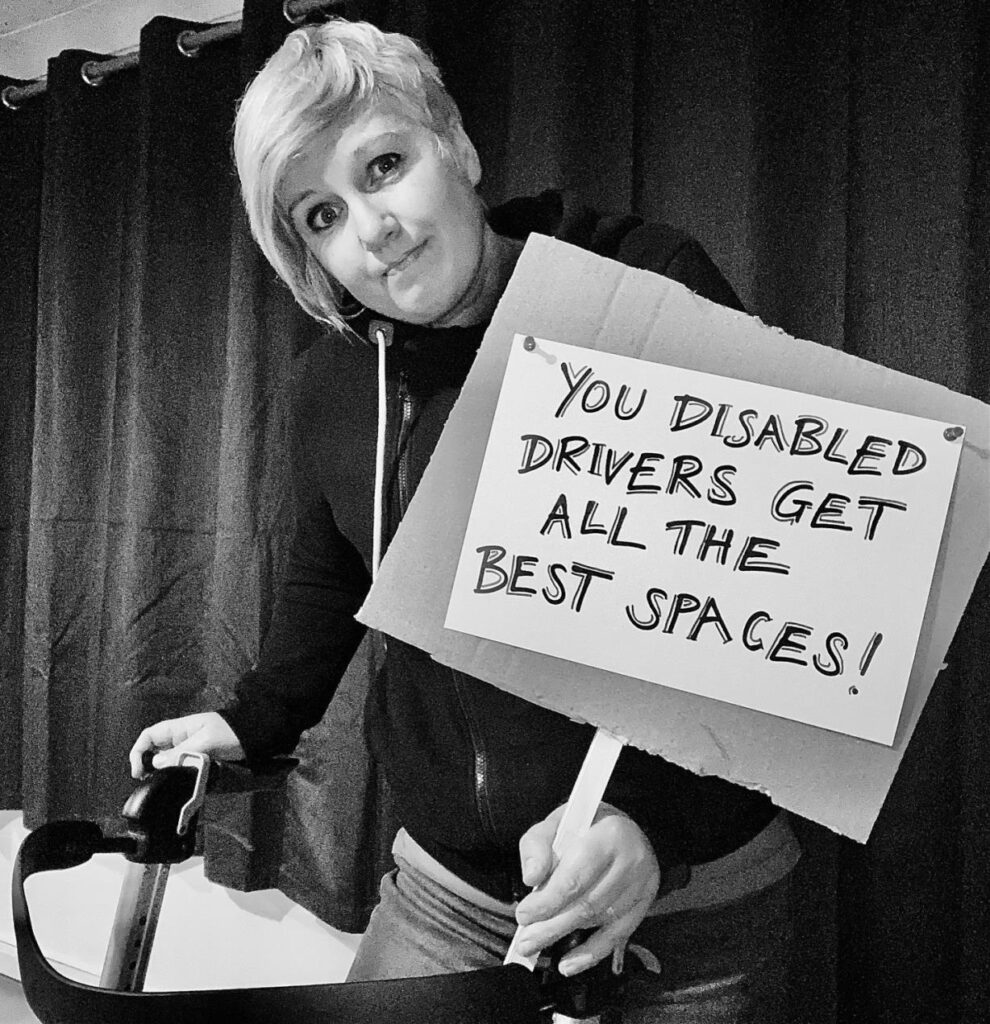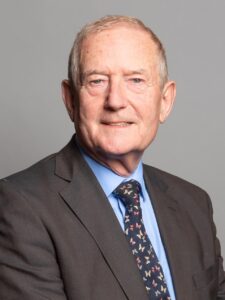Disabled woman shares photographs showing discrimination from members of the public

A woman who lives with a very rare and progressive muscle-wasting condition has released a series of photographs highlighting the microaggressions she experiences from members of the public.
Louise Halling is 43 and lives in Poole, Dorset with her husband Mark and son Jacob. She was diagnosed with limb girdle muscular dystrophy at the age of 20, a condition that causes progressive muscle wastage. Louise experiences extreme pain and fatigue every day and describes managing her condition as a “fine balancing act” while juggling life as a mum, wife, and psychotherapist.
Louise needs mobility assistance when out and about, either through her walker, mobility scooter or manual wheelchair due to muscle wastage in her legs. She says this attracts unwanted attention and comments from passers-by who often make comments.
Louise has now released a series of emotive photographs on her social media accounts in a bid to initiate conversations around prejudice towards disabled people. The photos show Louise holding a series of placards that represent a small selection of the many unsolicited comments she receives from members of the public.
A thread of Louise’s photographs can be accessed here: https://twitter.com/videocounsellin/status/1448948673262592005
Louise hopes that these images will open the conversation around disability, not close it down. Rather than people feeling ‘afraid’ to speak, she wants them to be more thoughtful about what they say, or indeed if they need to say anything at all.
Louise is often told “You poor thing” or “I could do with one of those” in relation to her mobility scooter. She also describes the “wheelchair pity” smile that she says plays into patronising narrative of sympathy towards disabled people.
Louise said: “Capturing and releasing these photographs was a way for me to reclaim my body and to challenge some of the comments that I am sure many other disabled people also experience every day. The trauma of hearing people say “I don’t know how you cope” or “You disabled drivers get all the best spaces” builds up over time and can leave me feeling very frustrated and angry. I don’t have any choice but to cope, because what’s the alternative? While people generally don’t intend to cause offence with their comments, I hope that my photos will encourage to them think about what is and isn’t appropriate to say.”
Louise said that she’s often asked about her disability while out in public with her family.
She said: “If the only reason you’re interrupting me is to make a comment about my disability – however harmless it might seem – then I’d ask you to reconsider. One time a woman took it upon herself to express her surprise that my son was actually my own child. That was so hurtful. I’m really pleased Muscular Dystrophy UK is supporting me to encourage more conversations around what comments are and aren’t appropriate. I don’t want people to feel paranoid or worry that they can’t say anything to a disabled person anymore for fear of offending them. Rather, I’m trying to encourage members of the public to see the person beyond the disability and reflect on the impact that their comments may have.”
Robert Burley, Director of Care, Communications and Support at Muscular Dystrophy UK, said: “Our community often tell us that non-disabled people can make insensitive remarks without intending to cause offence. These isolated incidents might seem inconsequential, but they build up over time and can be really distressing, especially because disabled people already face a significant number of barriers that exclude them from so much in life. Muscular Dystrophy UK hopes that Louise’s photograph series encourages people to reflect on how they can be more inclusive with their language and behaviour. After all, we should all strive to live in a society where disabled people are treated with the dignity and respect we all deserve.”




